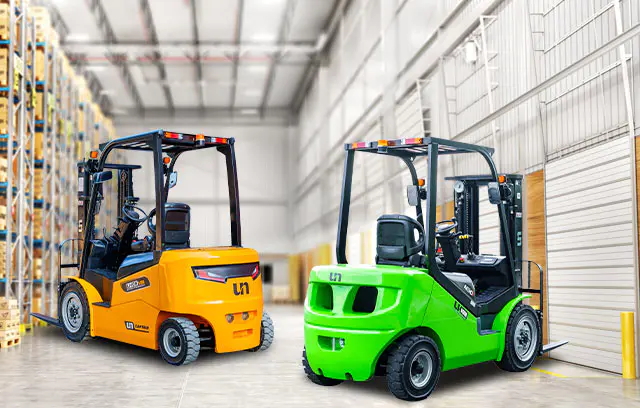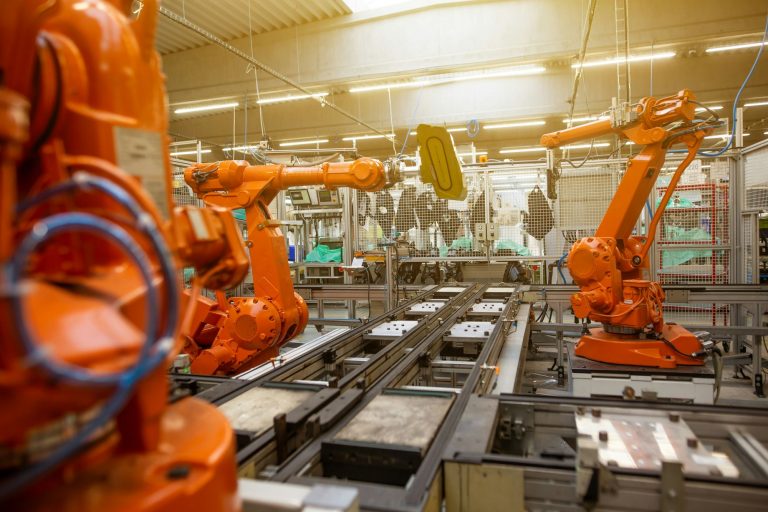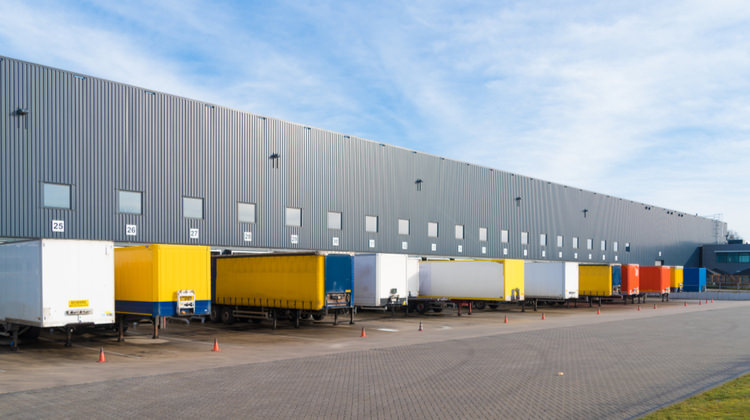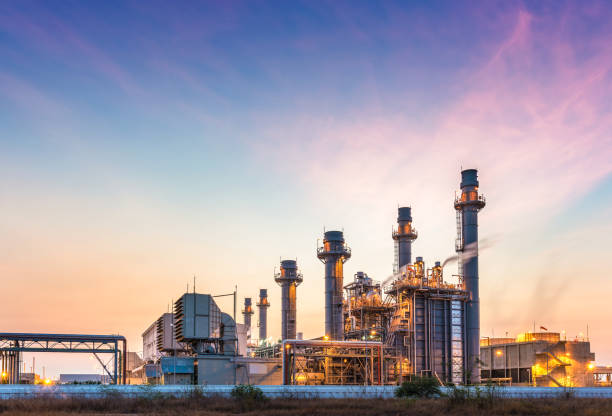Li-ion: Key Factors to Consider for Lift Truck Batteries
The benefits of using Lithium-ion (Li-ion) batteries for forklifts are numerous and significant. One of the most notable advantages is their extended cycle life, which minimizes the frequency of battery replacements. This not only saves companies money in the long run but also reduces the environmental impact of constantly disposing and replacing batteries.
Lithium Iron Phosphate (LFP), a subset of Li-ion is the safest chemistry available, and its long cycle life means that it will last the lifetime of the truck. While higher energy li-ion chemistries are available, LFP is safest with the longest cycle life due to its stable chemical makeup. In addition to their longevity, LFP batteries offer fast charging capability. This is a game-changer for businesses that need to keep their forklifts running continuously throughout the workday. With traditional lead-acid batteries, there is a significant amount of downtime required for charging, which can hinder productivity and slow down operations. However, with LFP batteries, the fast-charging time significantly reduces this downtime, allowing for more efficient and continuous use of forklifts. Moreover, the fast-charging capability also enables opportunity charging. This means that instead of waiting for a battery to fully discharge before recharging, forklift operators can top up the battery whenever there is a break in their work shift. This not only saves time but also allows for a more flexible and adaptive charging schedule, improving overall efficiency.
A demonstration of how much more stable the LFP chemistry is compared to the high energy Lithium Cobalt Oxide (LCO), used in consumer electronics, is to compare the thermal runaway temperatures- the high temperatures at which the chemistries begin to become unstable and volatile. LCO has a much lower thermal runaway temperature of 150°C (302°F) compared to LFP’s thermal runaway temperature of 270°C (518°F). This large difference shows LFP to be the much safer of the two lithium chemistries.
For more information on the safety aspects of Li-ion batteries, download Green Cubes’ white paper “Reduce Workplace Injuries with Li-ion.”
The use of LFP batteries also reduces maintenance costs and downtime due to battery replacements. These batteries have a longer lifespan compared to traditional lead-acid batteries, reducing the need for frequent replacements and resulting in cost savings over time. This also means less downtime for forklifts, as they can operate longer without needing to be taken offline for battery changes.

Cold-temperature cycle life is vastly improved for a lower total cost of ownership. Temperature-controlled supply chain is more important than ever with today’s volatile supply chain. Online ordering of pre-prepared food, beverage clubs, and medicine distribution are all increasing the need for cold-chain technology. Electric material handling equipment is favored for indoor environments, but traditional lead-acid batteries pose significant challenges, especially at extremely cold temperatures. The extreme cold temperatures can cause the battery electrolyte to freeze which lowers the usable capacity of the battery, which uses information commonly provided by lead-acid battery manufacturers. In addition, there is permanent damage to the lead acid battery which greatly shortens the battery’s cycle life. Unlike lead acid cells, Li-ion battery packs offer a complete solution with integrated smart communication, charging, and heaters to keep the battery at an optimum temperature.
When the battery temperature is lowered, the intelligent control system enables the heaters to prevent the battery temperature from reaching a temperature too low to charge and prevent cell damage. The charge system (or cables) can be brought into the cold storage area, so that temperature equilibration is not required and there is no more risk of dangerous condensation. Full charge time is only one hour and charging can be performed opportunistically. The same equipment is used for multiple shifts with no downtime, so the number of vehicles required is lowered and operating costs are lessened.
For more information on Li-ion cold temperature performance, download Green Cubes’ white paper “Best Practices for Cold Temperature.”
Moreover, the use of LFP batteries promotes environmental sustainability by reducing the reliance on lead-acid batteries. Lead is a toxic heavy metal that poses significant health and environmental risks if not properly disposed of. By switching to LFP batteries, businesses can reduce their carbon footprint and contribute to a cleaner and healthier environment.
Finally, when comparing the various Li-ion manufacturers supplying LFP batteries to the lift truck market, it is important to look for experience and longevity. There are many possible issues that can arise with truck and charger integration because Li-ion batteries require communication to operate properly and inform the operator of state of charge conditions. Commissioning and right-sizing the batteries are key to recognizing the total cost value proposition. Time is required to have an engineering and service staff prepared to prevent and address issues in the field. Green Cubes’ Lithium SAFEFlex batteries were a groundbreaking introduction when launched in the market over 10 years ago and now represent a significant presence, powering more than 10 thousand trucks.






